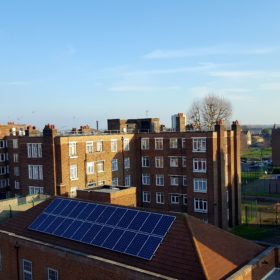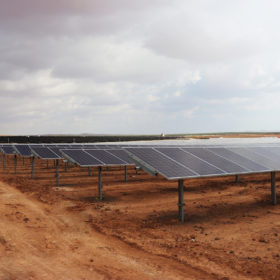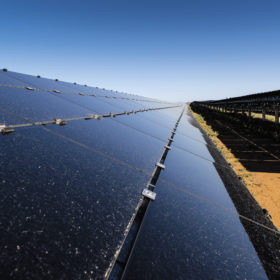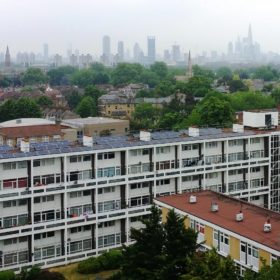Centrica invests in Internet of Things startups and sees 4.5 GW flexibility potential in the UK
With its investment, the energy company has broadened its portfolio of ways to help customers save on energy bills. There are multiple energy companies pursuing similar goals at the moment as distributed generation and storage solutions require utilities to find new business models; not the least to avoid grid expansion costs.
First Middle Eastern utility-scale solar-plus-storage plant comes online
The 23 MW/12.6 MWh facility is near Mafraq, in northern Jordan. The storage system will offer peak shaving to increase grid stability while enhancing solar output.
Power-to-gas crucial for solar-based energy system
In the Infrastructure Outlook 2050 study, Gasunie and TenneT say ambitious EU climate targets can only be reached through deeper integration of the power and gas infrastructure, and with power-to-gas technologies supporting renewables. The most bullish scenario for solar states how storage and power-to-hydrogen capacity could be crucial to meet seasonality in supply and demand.
From laggard to leader: New South Wales Labor party’s election pledge for extra 7 GW of renewables
Australia’s Smart Energy Council welcomed yesterday’s launch by the NSW Labor party of a policy to drive 7 GW of renewable energy into the National Energy Market by 2030 as “the biggest rollout of renewable energy in Australia’s history”.
The Windy – or maybe that should be nuclear – City will go 100% renewable
Chicago may be the largest city in the U.S. to commit to 100% renewable energy and has set a 2035 target date. The famous city’s long association with nuclear power says a lot about the future of clean energy Statesside.
India a $50bn market for energy storage, says US energy firm chief
Given its ambitious goal of achieving 175 GW of renewable power generation capacity by 2022 – and push for electric mobility – the world’s second most populous nation presents a potentially huge investment opportunity.
Solar, wind and storage can provide seven key grid services
Former NREL employee pens paper to rebut claims conventional energy can supply the essential grid services needed to return to normality after network disruption. The author says claims renewable energy cannot provide such services are erroneous.
South Africa’s load shedding nightmare may vanish with more renewables
As utility Eskom starts load shedding due to power plant failure, the 4 GW of wind and solar in the country are helping reduce energy shortages. Blue Horizon Energy Consulting Services’ Chris Ahlfeldt tells pv magazine renewables – rather than Eskom’s plans to expand conventional generation capacity – would provide a safer, cheaper solution to the power crisis.
EDF helps Londoners share solar power using blockchain
The CommUNITY project is being realized outside the U.K. regulatory framework, which does not permit power trading between electricity customers.
Slovakian utility ZSE launches virtual battery for residential PV
The service, costing €2 per month, is for residential customers that use PV products provided by the power company. The system is provided by E.ON group – a shareholder in the Slovak utility – and has already been launched in Germany, Czechia and Italy.










